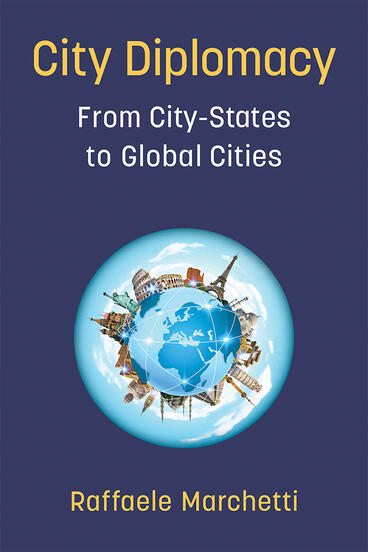How urban diplomacy defines international relations globally
Description
While the view that only states act as global actors is conventional, significant diplomatic and cross-cultural activity is taking place in cities today. Economic growth and fiscal experiments all occur in urban contexts. Political reforms, social innovation, and protests and revolutions generate in cities. Criminal activities, terrorist actions, counterinsurgency, missile attacks (indeed, atomic bombs), and wars are centered in big cities. They are sources of global pollution as well as of environmental transformations such as urban gardening. Knowledge production, big data collection, and tech innovation all spur from intense interaction in cities. They are the meeting points between different cultures, religions, and identities.
These increasingly international cities develop twinning networks and projects, share information, sign cooperation agreements, contribute to the drafting of national and international policies, provide development aid, promote assistance to refugees, and do territorial marketing through decentralized city-city or district-district cooperation. Cities do what “municipalities” used to do many centuries ago: they cooperate but also enter into intense competitive dynamics. To understand current sociopolitical dynamics on a planetary level, we need to have two mental maps in mind: the state-centered map and the nonstate centered map. We must take into account the existence of a complex diplomatic regime based on different overlapping levels—the urban and the state.
Raffaele Marchetti is Deputy Rector for Internationalization and Professor of International Relations at the Department of Political Science and the School of Government of LUISS in Rome.
Reviews
“A comprehensive and compelling treatment of the role of cities and their growing importance on the world stage. The book captures with impressive clarity the many dimensions of city diplomacy, its history, and how it is shaping bilateral and multilateral governance across a range of policy areas and economic relations. A must-read.”
—Sheila Foster, Georgetown University
- Sheila Foster
“As the international relations of local governments are increasingly in the spotlight, much guidance is needed the world over as to how to navigate ‘city diplomacy.’ Marchetti’s succinct primer comes in handy here as a timely and accessible companion for both students and practitioners of global governance to grasp, and embrace, this burgeoning field of action.”
—Michele Acuto, University of Melbourne
- Michele Acuto
“There is much talk of a need for a ‘new’ diplomacy for a world order in disarray. It is usually an over-generalized but under-specified assertion of the importance of nonstate actors. Marchetti’s discussion of city diplomacy addresses this problem in one crucial area. In so doing, he offers an invaluable historical and contemporary contribution to the theory and practice of international relations.”
—Richard Higgott, Distinguished Professor of Diplomacy, The Brussels School of Governance
- Richard Higgott
“Marchetti’s new book argues that governance is multilateral, but also multilevel. From climate change to demographic challenges or digital transition, cooperation between local authorities enables the localization of the UN’s Sustainable Development Goals. It also sets the scene for city diplomacy to flourish, whereby mayors use their soft power on the international stage.”
—Filippo Terruso, EU Officer
- Filippo Terruso
"Marchetti’s idea of identifying city diplomacy as a subfield of global politics is remarkable as it helps us to rethink IR itself under the weight of the globalization regime."
- Michel Laguerre
—Michel Laguerre, University of California at Berkeley
"...the book contributes a well-rounded and contemporary collection of thought that helps scholars and practitioners keep pace ahead of the rapidly expanding and evolving sphere of activity by cities in the world affairs."
- Benjamin Leffel
—European Review of International Studies
"Marchetti’s book proves to be a solid theoretical analysis of city diplomacy, as well as inclusive of comparative and complementary concepts as rural and regional diplomacy."
- Carla Cabrera Cuadrado
—Journal of Public Diplomacy
Shortlisted: 2023 Pattis Family Foundation Global Cities Book Award
- Center on Global Cities and The Pattis Family Foundation

